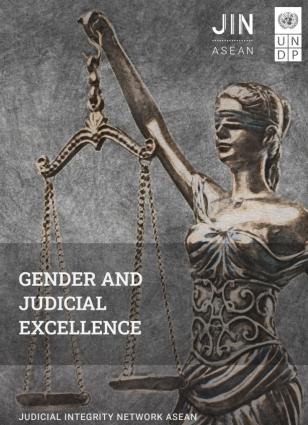UNDP Gender and Judicial Excellence

UNDP Gender and Judicial Excellence
October 4, 2022
Gender related issues can arise in any judge’s court, in any level of court, by any of the actors in the court and at any stage of a judge’s career, for both men and women. Gender issues are often dismissed as women’s issues or only thought to be relevant in cases related to the family or when women are litigants. Court staff, police officers, expert witnesses and lawyers all might bring a gendered stereotype into their conduct or the way they present evidence. The Bangalore Principles of Judicial Conduct set out six values that make up the basis of judicial excellence -independence, impartiality, integrity, propriety, equality and competence and diligence. To fully meet these expectations of judicial conduct, judges must continue to educate themselves, ensure that there are adequate procedural protections in place and examine their own conduct about gender-related issues.
The Judicial Integrity Network ASEAN (JIN ASEAN), a network of judges supporting each other across the region has developed Issue Briefs to support judges and judiciaries taking action on the recommendations discussed at the UNODC’s Implementing the Doha Declaration event3. The Issue Briefs are based on sector research, and on surveying and small group discussions with judges in the ASEAN region.

 Locations
Locations




